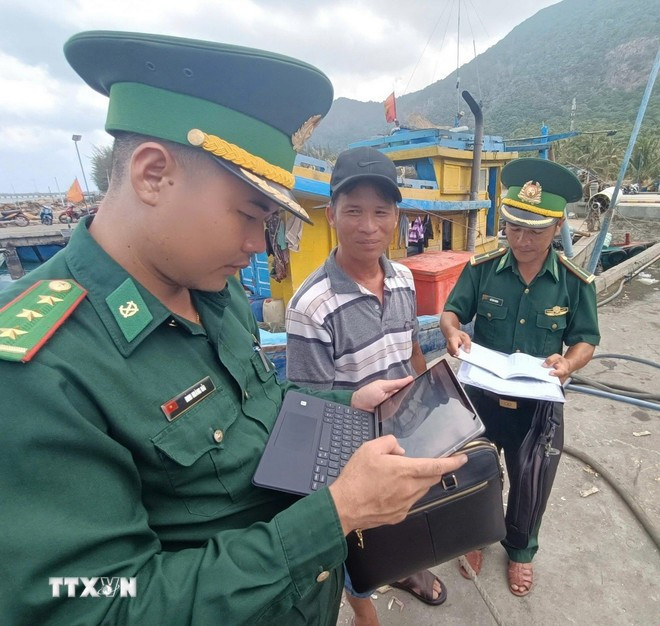As Vietnam intensifies efforts to have the European Commission's (EC) "yellow card" warning against Vietnamese seafood exports for illegal, unreported, and unregulated (IUU) fishing lifted, Ho Chi Minh City is making strides in applying digital technologies to improve fisheries management and transparency.
Across the city’s coastal communities, local authorities are adopting specialised digital applications to manage fishing vessels, monitor catch data, and support traceability efforts.
These tools not only streamline administrative procedures but also help fishermen comply with national regulations and EC recommendations.
In Long Hai commune – part of former Ba Ria-Vung Tau province – vessel owners are now equipped with apps that allow real-time tracking of their boats and digital submission of catch logs.
Nguyen Van Quang, a local boat owner, shared that after a weather-related disruption disabled his vessel’s monitoring device, he received hands-on guidance from local officials on how to install and use a mobile app to restore connection and report the incident digitally.
“Once I got used to it, everything became more convenient. I can now monitor and declare my fishing activities without visiting the commune office,” Quang said.
Zalo groups have also been created to connect boat owners, captains, and authorities, serving as a rapid information channel to share updates on fishing regulations, report violations, and offer assistance in case of emergencies at sea.
These groups now include representatives from the city's Fisheries Sub-Department, Border Defence Forces, and local police, strengthening coordination and transparency.
Fishermen also use advanced tools such as electronic fishing diaries and violation reporting apps. Despite initial challenges for older or less tech-savvy fishermen, local authorities have provided thorough, step-by-step training. “Now I can report from home or at sea using my phone,” said fisherman Le Minh Nhat from Phuoc Hai commune.
According to the Ho Chi Minh City Department of Agriculture and Rural Development, key digital platforms such as the national eCDT (Electronic Catch Documentation and Traceability) system are now fully implemented across the city’s fishing ports. Data is updated daily and synced with Vietnam’s national fisheries database, aligning with EC recommendations for IUU fishing prevention.
At Cat Lo Port in Phuoc Thang ward, 100% of offshore vessel owners now use the eCDT system which also facilitates export certification and streamlines customs clearance for EU markets.
“This digital tool allows us to record every catch, making everything transparent,” Tran Van An, an offshore fisherman said, adding that it saves time as data is updated to the system, so fishing crew don’t need to report when they return a port.
Huynh Van Minh, another fisherman from Phuoc Hai commune, echoed the benefits: “It’s much easier now. No more paperwork. Everything from catch volume to species and buyers is declared through the app.”
By promoting digital transformation in fisheries, HCM City is contributing to nationwide efforts to improve transparency, protect marine resources, and regain the trust of international partners, especially the European Union./.



















